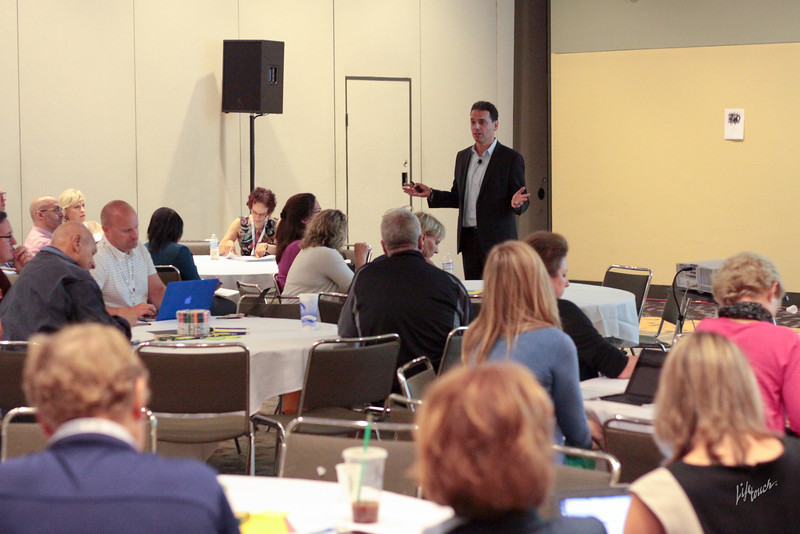Art Education Is Fundamental, Not Ornamental, Says Daniel Pink
Conference News Online – 2013 By Anthony Moyer In his workshop at the 2013 NAESP Conference, author Daniel Pink shared information about the importance of arts in education. Hearing him speak in this intimate setting was an exciting and valuable experience.
By Anthony Moyer
 In his workshop at the 2013 NAESP Conference, author Daniel Pink shared information about the importance of arts in education. Hearing him speak in this intimate setting was an exciting and valuable experience.
In his workshop at the 2013 NAESP Conference, author Daniel Pink shared information about the importance of arts in education. Hearing him speak in this intimate setting was an exciting and valuable experience.
Pink began his presentation by emphasizing his belief in the STEM movement in schools. But he also believes that the arts play an important role in schools, and that the STEM acronym should really be STEAM: science, technology, engineering, art, and mathematics. Although politicians and education policymakers endorse the STEM movement, said Pink, many do not believe that arts in education are essential, and, unfortunately, often advocate for the removal or minimization of art programs.
But arts and the sciences go hand in hand. Some medical schools are requiring students to learn more about art. Medical students travel to art museums for diagnostic training, for instance, where they learn to ask the right questions and make critical observations. Asking the right questions has become more important than providing the right answers, since technology is now capable of providing us with accurate information at our fingertips. Doctors who are literate in the arts are able to reason both analytically and algorithmically. Pink emphasized that arts education has traditionally been viewed as ornamental, but he encouraged us to view it as fundamental.
He encouraged school leaders to advise our teachers to require less “commissioned” work of students. Commissioned work is regimented; non-commissioned activities have few constraints, allow individuals to be self-directed, encourage free-thinking, and are fun and engaging. Pink shared that students and staff members perform more effectively when assignments and tasks are non-commissioned. He advocated for activities such as “genius hours,” during which staff and students have the opportunity to engage in non-commissioned work, and answer questions such as, “Name one thing that would make our school more effective.” Pink reminded us to focus on staff members who are “first movers,” since they serve as catalysts for new and innovative ideas and tasks. He also warned us about setting unrealistic “big, audacious goals” that are difficult to achieve. Instead, he directed us to set goals to earn “small wins” that are realistic and attainable.
I left Pink’s pre-conference session with the strong belief that art is not ornamental, but fundamental. Next school year, I plan to focus on “small wins,” provide time for “genius hours” for my staff and students, and encourage teachers to provide more non-commissioned work throughout the school day. Art teaches rigor and self-direction, two characteristics that employers seek in their employees, Pink pointed out. If we hope to prepare our students for the 21st century, arts education is fundamental.
Anthony Moyer is principal of Willow Lane Elementary School in Macungie, Pennsylvania.
Photo courtesy of Lifetouch.
Copyright © 2013 National Association of Elementary School Principals. No part of the articles in NAESP magazines, newsletters, or website may be reproduced in any medium without the permission of the National Association of Elementary School Principals. For more information, view NAESP’s reprint policy.

